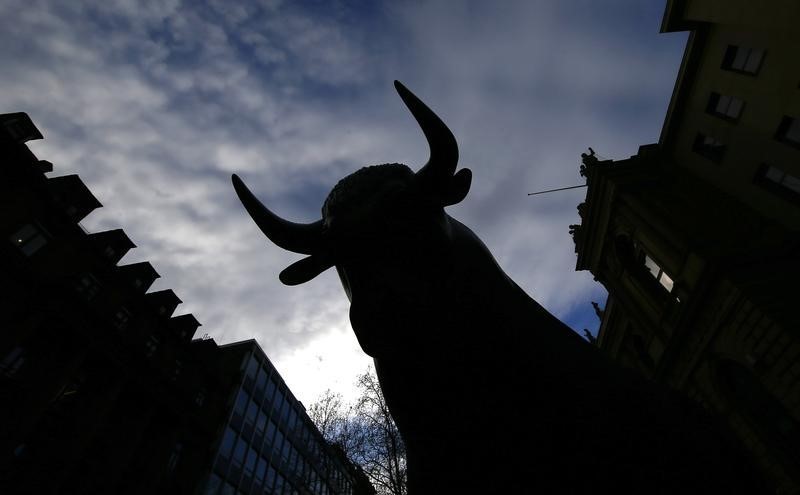This post was originally published on this site

Investing.com — Europe’s stock markets remained stuck in the dog days of summer on Monday, as the continent struggled to contain a second wave of Coronavirus cases, while threats of geopolitical instability in Belarus and the Eastern Mediterranean also continue to drag on sentiment.
New case numbers in Europe remain well below those witnessed in the first devastating wave of the pandemic in the spring. The EU and U.K. as a whole registered barely 10,000 cases on Sunday, compared with over 42,000 in the U.S. (which has only three-quarters the population of the EU and U.K.)
However, the pandemic’s trajectory in Europe has worsened sharply in recent weeks, amid signs of fatigue with social distancing. Over the weekend, Spain and Italy were forced to order the renewed closure of nightclubs, while Germany declared all of Spain to be a risk area, with the exception of the Canary Islands.
France’s public health authorities, chastened by the U.K.’s decision last week to impose quarantine requirements on all travelers returning from the country, acknowledged that all of the country’s main indicators were going the wrong way, with the cities of Paris and Marseille notable hotspots.
To an extent, the authorities have accepted this development when they loosened travel restrictions back in June, implicitly acknowledging that they needed to allow people at least a temporary reprieve to guarantee public consent for what is still likely to be a year-long disruption of public life.
What has happened so far doesn’t make that a bad judgment. With the exception of Spain, where case numbers are elevated across most of the country – including non-tourist areas – most of the latest outbreaks in Europe are localized, attributable to specific elements of local demographics and economic life.
But it does press the question of where the next leg up in European stocks is going to come from. A sharp rebound in output in the third quarter is already priced in, but the outlook beyond that timeframe is still extremely murky.
By 5:30 AM ET (0930 GMT), the Stoxx 600 was up 0.3% at 369.08. Momentum generated by the initial policy response to the crisis has faded completely, and it’s now nearly a month since it last posted a post-pandemic high. Spain’s IBEX 35 was down 0.6% and is now down over 10% from its June high. Melia Hotels (MC:MEL) stock was down 7.0% on the prospect of losing German tourists for the rest of the summer, in addition to British ones. Such outperformance as stood out was due to factors that had little or nothing to do with the situation in Europe: London-listed miners led the way on hopes that the latest Chinese monetary easing would support demand for steel – something that appeared to be flagging in last week’s disappointing industrial production data.
The market, in short, remains dependent on the path of the pandemic. There is no lasting rally in sight for the former without victory over the latter.


